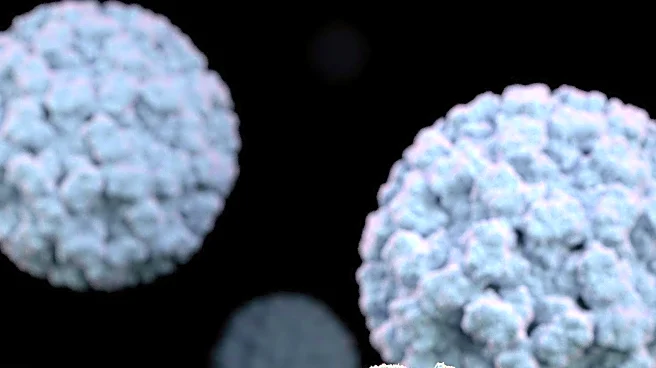What's Happening?
Research presented at the European Society for Medical Oncology conference suggests that COVID mRNA vaccines may enhance the immune system's ability to fight tumors during cancer treatment. The study found
that cancer patients receiving immunotherapy who were vaccinated with an mRNA COVID vaccine within 100 days before starting treatment lived longer. The research, involving over 1,000 patients with advanced non-small cell lung cancer and metastatic melanoma, indicates that mRNA vaccines could exist in a 'Goldilocks zone,' providing a medium-strong immune response that enhances treatment effectiveness.
Why It's Important?
The findings offer a promising new approach to cancer treatment, potentially increasing the effectiveness of immunotherapy drugs. By boosting the immune system's ability to recognize and attack tumors, mRNA vaccines could provide a significant advantage in cancer care. This research highlights the potential for mRNA technology to transform cancer treatment, offering hope to patients who have limited options and improving survival rates. The study underscores the need for further research to validate these findings and explore the broader implications of mRNA vaccines in oncology.
What's Next?
A Phase 3 clinical trial is planned to confirm the initial results of the study. If successful, this research could lead to the development of mRNA vaccines specifically designed to enhance cancer immunotherapy. The trial will investigate the potential for mRNA vaccines to act as a beacon, guiding immune cells to attack tumors more effectively. This could represent a new frontier in cancer treatment, offering hope to patients who have limited options and improving survival rates across various cancer types.












